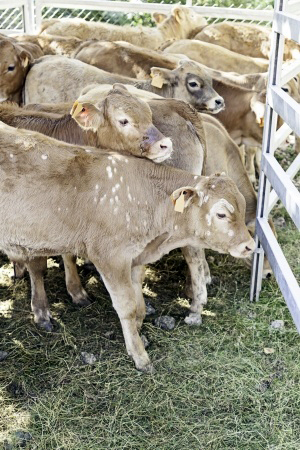 Most American consumers have long been aware of the effect that meat consumption can have on their bodies. Study after study has shown how over-indulging in fatty meats, especially red meat, can contribute to a variety of chronic health problems like heart disease and high cholesterol. However, consumers have recently become concerned about another side effect of U.S. meat consumption: to the environment.
Most American consumers have long been aware of the effect that meat consumption can have on their bodies. Study after study has shown how over-indulging in fatty meats, especially red meat, can contribute to a variety of chronic health problems like heart disease and high cholesterol. However, consumers have recently become concerned about another side effect of U.S. meat consumption: to the environment.
New studies have popped up which warn of the greenhouse gasses released by the raising and processing of livestock-- among other negative factors. Although these charges are often overblown, there is some truth to these reports, and an increasingly environmentally conscious American population has begun to take note.
Some consumers have even begun to change their eating habits, as evidenced by a shift in supermarket trends across the country.
Understanding the Environmental Impact of Production Processes
With the proliferation of reports on global warming that have been published in the last few years, there are few Americans who aren’t aware of the effect that we have on our environment. Both industrial and agricultural efforts alike have contributed to extreme heat, wildfires, drought, flooding and severe storms.
In fact, according to the Union of Concerned Scientists, an independent environmental think-tank, agriculture produces both of the major greenhouse gasses— methane and nitrous oxide— which trap heat in the atmosphere and contribute to global warming.
While all livestock have the potential to negatively affect the environment, regardless of the type of meat being raised and processed, beef cattle have been singled out has particularly harmful to the environment than the production of other types of meat. Although a UCS report notes that agricultural emissions account for only a small percentage of greenhouse gasses in the US, the raising of beef cattle is a major contributor to those agricultural emissions—about 2.2 percent of our national total. In less industrialized nations, those percentages can reach as high as 18 percent, by some estimates.
In addition to the emission of greenhouse gases, beef cattle production has also been known to pollute water supplies, which is harmful to both humans and wildlife, and contribute to deforestation.
In order to keep up with demands, many beef producers have streamlined production processes for maximum efficiency by managing cattle in an industrial, factory-like setting. These operations produce an increased amount of pollutants, consume significant energy and require an abundance of grains in order to function.
Contradictory to growing environmental awareness, the American appetite for meat is still high. But it’s uncertain how long our nation’s love of meat products will outweigh our environmental conscience.
Consumer Concern and Changing Trends
Because of new information regarding the environmental impact of beef production, as well as relevant health concerns, we've seen the start of a slow reversal of traditional supermarket trends in the United States.
Many Americans are attempting to reduce the amount of meat they consume on a regular basis, and some are even eliminating meat altogether. In fact, according to Leading Market Research, overall meat consumption in the United States has been steadily declining over the last ten years. Among those consumers who are continuing to eat meat, many are opting for choices that are more environmentally-friendly than beef—chicken, pork, fish—which are, in many cases, healthier options as well.
Although our effect on the environment cannot be undone easily, actions taken by producers and consumers will reduce continued damage to the environment.
Even though the demand for beef has decreased recently, it still remains a staple in the American kitchen. But in light of the growing public concern, the food service industry must find a way to address such environmental issues.






